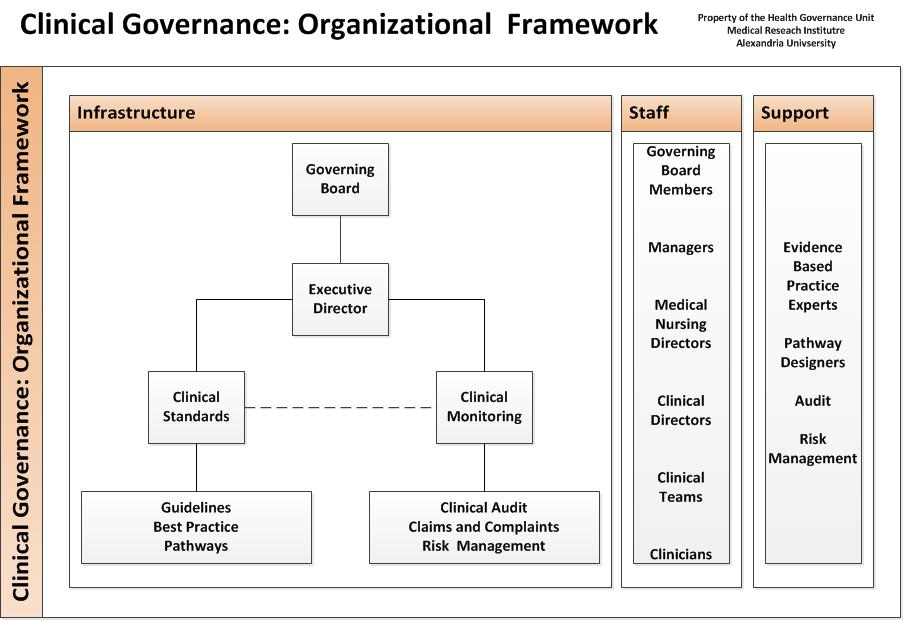
Clinical Governance Framework
Clinical governance requires a minimum of infrastructure and human resources to ensure its effectiveness and efficiency. First, governing bodies should endorse clinical governance as a strategic direction for ensuring quality clinical care offered by their organization. This strategic direction should be expressed through the development of several policies by the governing body that ensures the endorsement of this direction.
The executive part of the organization is then obliged to implement these policies, preferably, through its own strategies which are expected to include two essential independent lines.
First, clinical standards have to be defined with the involvement and agreement of the clinicians offering the care. The clinical standards are expected to be expressed through the adoption or adaptation of evidence based guidelines and implemented through the definition of local best practices and the production of clinical pathways which if integrated will ensure patient valued outcomes and minimum variability and waste.
Second, regular clinical monitoring of the offered care through clinical audit of the offered care, analysis of complaints and identified adverse events, and through risk reduction of the offered care.
To ensure a patient oriented outcome of these two lines clinicians have to lead these activities. Clinicians with executive role can be in charge of setting of clinical standards in collaboration with frontline clinicians (First Line). On the other hand, clinicians in charge of monitoring should not have executive responsibilities and should be independent in their approach and given the necessary authority to perform effective monitoring (Second Line). However, this monitoring should be done in a non-threatening environment and also in collaboration with frontline clinicians.
The governing body is expected to receive reports from the executive part of the organization on those two lines of activities. These reports should help healthcare organizations to be more transparent about their patient care and also help in the benchmarking of the services offered to the wider community.
Clinicians, by nature, may not have the complete set of competencies necessary to implement sound standards and perform effective monitoring. Therefore, they should receive support and sometimes training from staff that have been specifically trained on clinical governance competencies. These competencies should, at least, include methods of locating evidence of best practice, integrating best evidence into care pathways, auditing of clinical practice, handling of complaints, adverse event analysis, and proactive risk management.